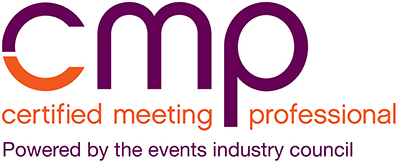Leveraging Sustainability to Advance the Profession
![]() Print this Article | Send to Colleague
Print this Article | Send to Colleague
Delegates at the Events Industry Council spring meeting, whose members comprise the CEOs of more than 30 of the leading industry associations, were asked to identify trends shaping our industry. What resulted was a riveting discussion on the changing nature of the industry, the emergence of new tech trends and even the current state of political affairs. While the specific concerns going forward varied, what ultimately emerged were five key trends that event professionals should watch closely in the year ahead.
In the coming months, we'll be examining how these trends relate to sustainability. First on our list of trends is advancing the event profession. An important step that we can all take to help advance our profession is to be able to articulate our business value. The Meetings Mean Business website has excellent resources to help us demonstrate the value of our industry, and we can further enhance this by being able to demonstrate the business value of meeting sustainably, While there are many business benefits to sustainable events (and we'll be exploring these in upcoming newsletters), one important aspect is to be able to effectively show how they can improve an organization's financial bottom line.
The Business Case for Sustainability
One of our biggest opportunities to transform our industry through sustainability is to effectively communicate the business value. Too often, there are misconceptions about sustainability; these usually involve the idea that it costs more, and that while nice to do, sustainability doesn't add value. It's time to change these perceptions. Fortunately, we have the data to prove it.
Sustainability Saves Money
At its core, sustainability calls for more efficient use of resources. With efficiency comes savings. While not all sustainable practices will save money, many will. For example, replacing individual water bottles with water stations is a great way to save money and be better for the environment. Below are some specific examples of how events and businesses in the events industry are saving money through sustainability.
• Since its launch in 2009, Hilton's LightStay™programme has driven significant operational efficiencies for the company, saving Hilton an estimated $750 million cumulatively.
• Nordic Choice hotels, in partnership with GreeNudge, conducted a study in 2012 where they used smaller plates for buffets to help reduce food waste. The results: a 19.5% reduction. When implemented on all Nordic Choice hotels, that sums up approximately 31 billion Norwegian kroner.
• SAP's dKom Series generated a net savings of €86,000 through sustainability (a ROI of 66%)
• The 2015 Danish Maritime Days' total expenditure to improve event sustainability was 41,000 DKK. Savings produced were 235,000 DKK giving a net benefit of 194,000 DKK (€26,000).
Survey Says: Clients Want Sustainability
Research commissioned by the Events Industry Council (formerly the Convention Industry Council) in 2016 shows that there is a strong demand for sustainable practices. For example, some of the top most requested sustainable practices from planners include:
• 73% request sorting recyclables
• 64.8% request vegetarian menus
• 57.9% request energy efficient lighting
• 56% request water glasses and filling stations instead of individual water bottles
• 55.3% request donating leftover food to charitable organizations
Another important finding from the survey: customers want suppliers to include information about their sustainable practices up-front, rather than having to ask for it.
Tips for Improving Your Financial Bottom Line with Sustainable Event Practices
• Use less: Start by reviewing your purchases to see if you can eliminate or reduce the use of materials. Be sure to review your guaranteed numbers to reduce possible food waste, and look for other opportunities to cut back such as by eliminating duplicates from mailing lists.
• Get to know the groups that precede and follow yours: There may be options for sharing decor, equipment or furnishings.
• Join the circular economy: Some event materials, such as carpets, can be recycled for a profit.
• Add sustainability related sponsorship opportunities: Many brands want to demonstrate their commitment to sustainability by supporting practices that are good for the environment and communities.
Mariela McIlwraith, CMP, CMM, MBA
Director of Sustainability, Events Industry Council

